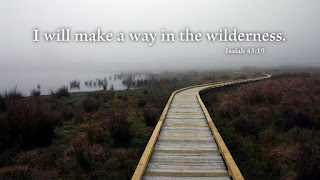 |
| Pietro da Cortona: Ananias Restoring the Sight of St. Paul (1631) |
(For my poem just on John 21:1-19, "Omega 3 Antidote to Scarcity," please go to the archives to the right for April 14, 2013, or see http://lectionarypoems.blogspot.com/2013/04/third-sunday-of-easter-april-14-2013.html)
Miraculous Responses
The fishy thing is, Ananias went,
When reason told him that it made no sense -
Except the Lord had called, and said to go!
Would you? Would you say, "Here I am," and so
Become just like those many others who
Those same words said, though didn't have a clue
Of what it meant? Except, we know; that phrase,
Each time it's said - to us who read - conveys
A risky proposition up ahead,
One where, without God's help, you end up dead.
But Ananias, standing in a line
Of faithful, almost to the start of time,
Responded, and so risked a trip to Saul,
And thus began a church - which fished for all.
Scott L. Barton
(Note: The words, "Here am I" (or "Here I am") by Abraham, Isaac, Jacob, Joseph, Moses, Samuel, Isaiah, Mary (Jesus's mother) and Ananias all portend some risky business that the LORD has in store for those who answer.)
Meanwhile Saul, still breathing threats and murder against the disciples of the Lord, went to the high priest and asked him for letters to the synagogues at Damascus, so that if he found any who belonged to the Way, men or women, he might bring them bound to Jerusalem. Now as he was going along and approaching Damascus, suddenly a light from heaven flashed around him. He fell to the ground and heard a voice saying to him, “Saul, Saul, why do you persecute me?” He asked, “Who are you, Lord?” The reply came, “I am Jesus, whom you are persecuting.But get up and enter the city, and you will be told what you are to do.”The men who were traveling with him stood speechless because they heard the voice but saw no one. Saul got up from the ground, and though his eyes were open, he could see nothing; so they led him by the hand and brought him into Damascus. For three days he was without sight, and neither ate nor drank.
Now there was a disciple in Damascus named Ananias. The Lord said to him in a vision, “Ananias.” He answered, “Here I am, Lord.” The Lord said to him, “Get up and go to the street called Straight, and at the house of Judas look for a man of Tarsus named Saul. At this moment he is praying,and he has seen in a vision a man named Ananias come in and lay his hands on him so that he might regain his sight.” But Ananias answered, “Lord, I have heard from many about this man, how much evil he has done to your saints in Jerusalem; and here he has authority from the chief priests to bind all who invoke your name.” But the Lord said to him, “Go, for he is an instrument whom I have chosen to bring my name before Gentiles and kings and before the people of Israel; I myself will show him how much he must suffer for the sake of my name.” So Ananias went and entered the house. He laid his hands on Saul and said, “Brother Saul, the Lord Jesus, who appeared to you on your way here, has sent me so that you may regain your sight and be filled with the Holy Spirit.”And immediately something like scales fell from his eyes, and his sight was restored. Then he got up and was baptized, and after taking some food, he regained his strength. For several days he was with the disciples in Damascus, and immediately he began to proclaim Jesus in the synagogues, saying, “He is the Son of God.”






